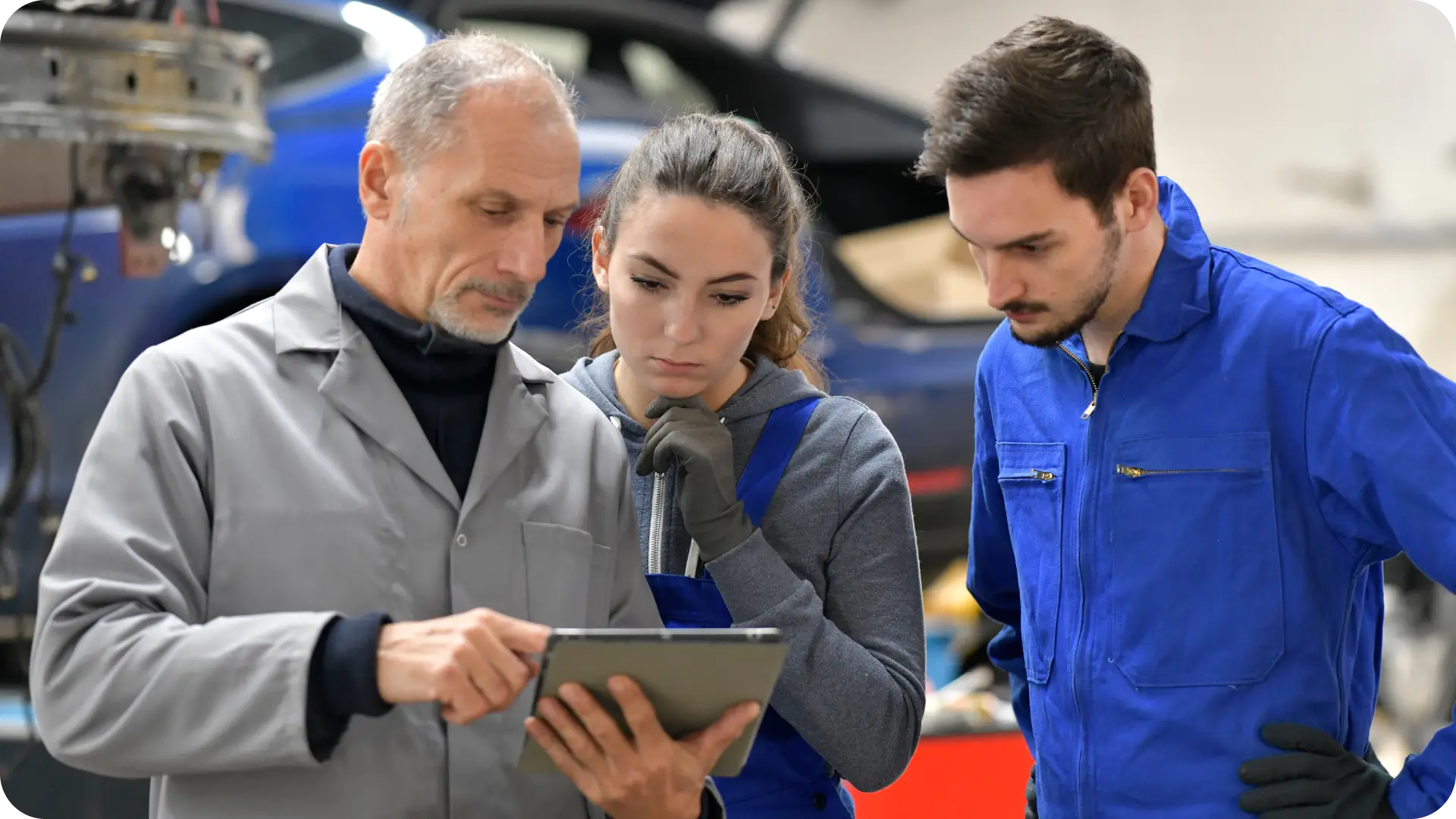Manufacturers today face a unique set of challenges when it comes to training a diverse, multi-shift workforce. The manufacturing sector often operates around the clock, with different teams working various shifts. This multi-shift environment creates a need for consistent and accessible training methods that cater to all employees, regardless of their work schedule. Video training platforms, such as DeepHow, emerge as a promising solution to these challenges, offering standardized, flexible, and engaging training methods to improve production, consistency, and quality.
In the manufacturing industry, consistency in training is not just a benefit – it's a necessity. The quality of products and the efficiency of processes heavily depend on the skills and knowledge of the workforce. Traditional training methods can lead to discrepancies in knowledge transfer, especially in a multi-shift setup. Video platforms like DeepHow address this challenge by providing standardized training materials accessible to all employees, ensuring operational consistency across various shifts.


One of the critical challenges in training a multi-shift workforce is accommodating different schedules. This can have a negative impact on training as employees working night shifts or rotating schedules might find it difficult to attend traditional, scheduled training sessions. Video training platforms offer a flexible solution. Workers can access training materials at their convenience, ensuring that everyone receives the necessary training without disrupting their work schedule.
Generational differences and supervision issues present significant challenges in knowledge sharing within multi-shift manufacturing environments. Younger workers, who often populate later shifts, may exhibit a lack of commitment to traditional methods and processes. This generational divide can create a disconnect in the transfer of crucial knowledge. Furthermore, inconsistent supervision exacerbates these challenges. Without a steady and uniform supervisory presence, there is often a lack of reinforcement and accountability for knowledge-sharing practices. This combination of generational gaps and inadequate supervision can significantly hinder the effective dissemination of information and best practices across different shifts, impacting overall productivity and consistency in operations.
When lines fail in the second and third shifts - where is your expert? Are they on call? Do they have to come in? One lead trainer at Anheuser-Busch found that before implementing DeepHow, he would spend 15 - 30 hours a week just in overtime, training workers on other shifts. After investing 2 - 3 hours a week capturing expertise with DeepHow and storing his knowledge in a digital library, that overtime reduced drastically. He was able to spend those hours instead with his family, and the weekend and late night shifts saw a staggering improvement in productivity - and Anheuser-Busch was later recognized for several Manufacturing Leadership Council awards due to its implementation of the technology.

Manufacturing jobs often require hands-on skills, making interactive and engaging training content crucial. Video training platforms can provide a more immersive learning experience compared to traditional methods. With video, training is more effective, especially for practical skills essential in manufacturing tasks where visual examples and cues are critical.
Studies show that video training greatly improves knowledge retention when compared to traditional, text-based SOP documents. DeepHow also makes it easy for workers to access training right from their smart devices. Training frequency increases by 42% when done through mobile.
In a field where skill levels directly impact production quality, tracking and assessing employee progress is vital. Platforms like DeepHow come equipped with analytics and assessment tools, enabling managers to monitor and enhance the effectiveness of training programs. These tools can identify areas where employees may need additional training, ensuring that all workers reach the required competency level.
The absence of formalized training and documented processes is a major obstacle in effective knowledge sharing within manufacturing environments. When there is a lack of structured training programs and comprehensive job aids, employees often miss out on critical information and best practices necessary for their roles. This gap in formal training leads to inconsistencies in how tasks are performed and a diminished overall efficiency.
However, this challenge is being addressed by digital platforms which offer systematic training and accessible documentation. These digital tools provide a standardized approach to training and knowledge sharing, ensuring that all employees, regardless of their shift or experience level, have access to the same high-quality resources and information, thus promoting uniformity and efficiency in operations.

Safety is paramount in manufacturing, and ensuring that all employees, irrespective of their shift, are well-versed in safety protocols is critical. Video training platforms can deliver consistent, thorough training on safety and compliance regulations. This uniform approach to safety training helps in minimizing risks and maintaining a safe work environment.
Adopting video training platforms in manufacturing also has significant cost benefits. These
platforms can reduce the need for in-person training sessions, thereby decreasing downtime. They also contribute to increased production efficiency by ensuring that all employees are adequately trained and factory floors remain operating. In the long run, the investment in digital training methods can lead to substantial financial savings for manufacturers.
The story of Anheuser-Busch’s MCC Lid Plant illustrates the effectiveness of video training platforms. The plant faced a challenge in preserving expert knowledge due to a wave of retirements. By implementing DeepHow, they were able to capture this expert knowledge, significantly reducing training time for new employees by 80% and improving production efficiency. This success demonstrates how digital training solutions can effectively address unique challenges in the manufacturing sector.

The integration of video training platforms in the manufacturing sector addresses several challenges associated with training a diverse, multi-shift workforce. Platforms like DeepHow offer a solution that is consistent, flexible, engaging, and cost-effective. As the manufacturing industry evolves, adopting digital training solutions becomes not just beneficial but essential for enhanced efficiency and productivity. Manufacturers must recognize the necessity of these platforms to stay competitive and maintain high standards in their operations.

Start capturing, structuring, and activating your expert
knowledge today with a 14-day unlimited free trial.